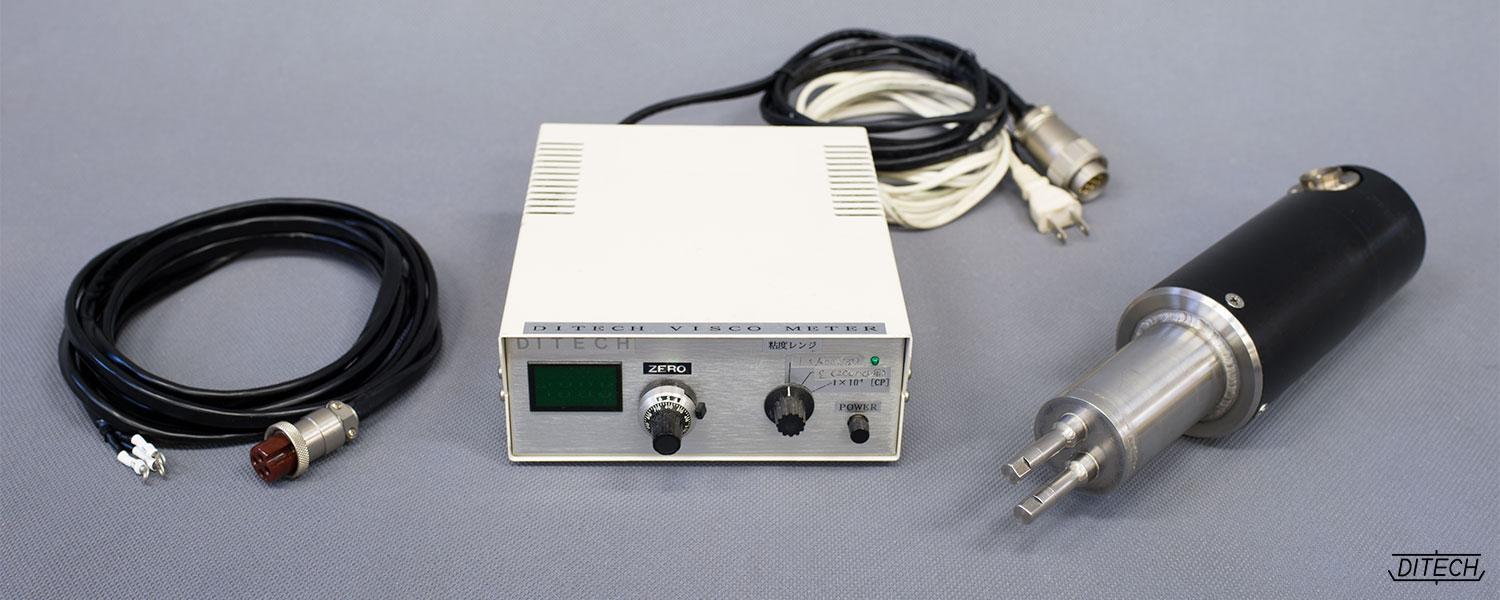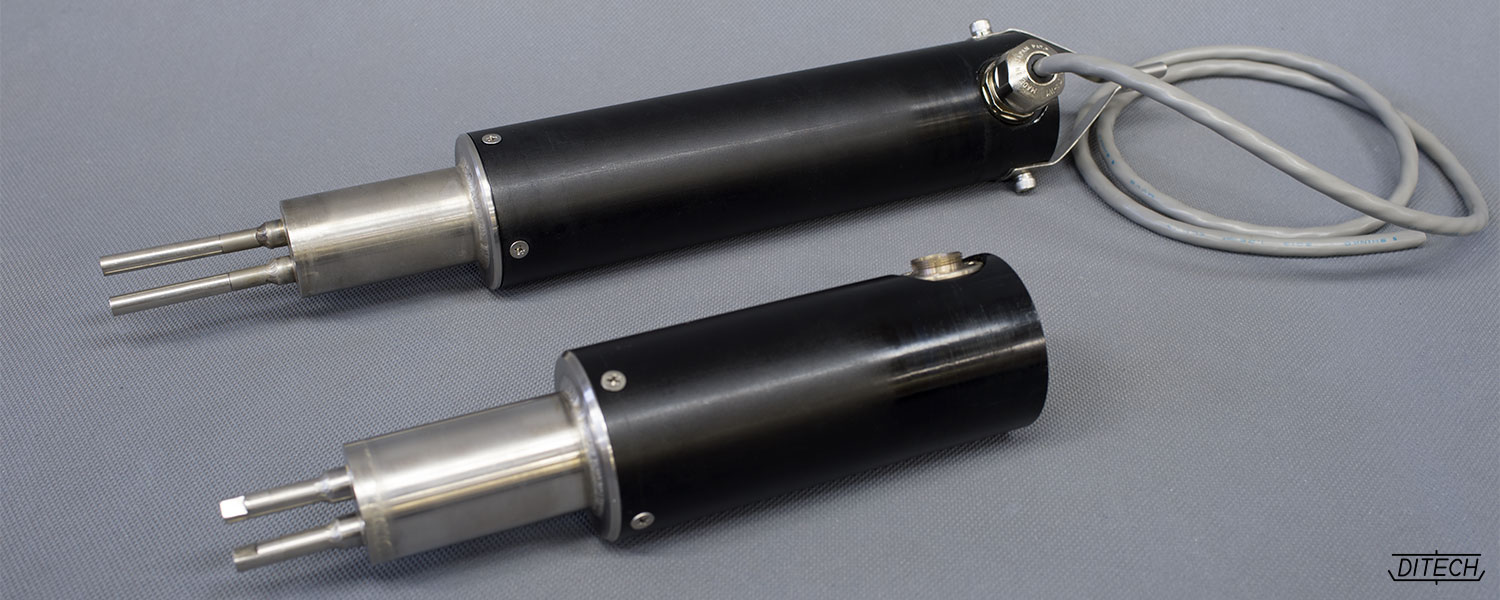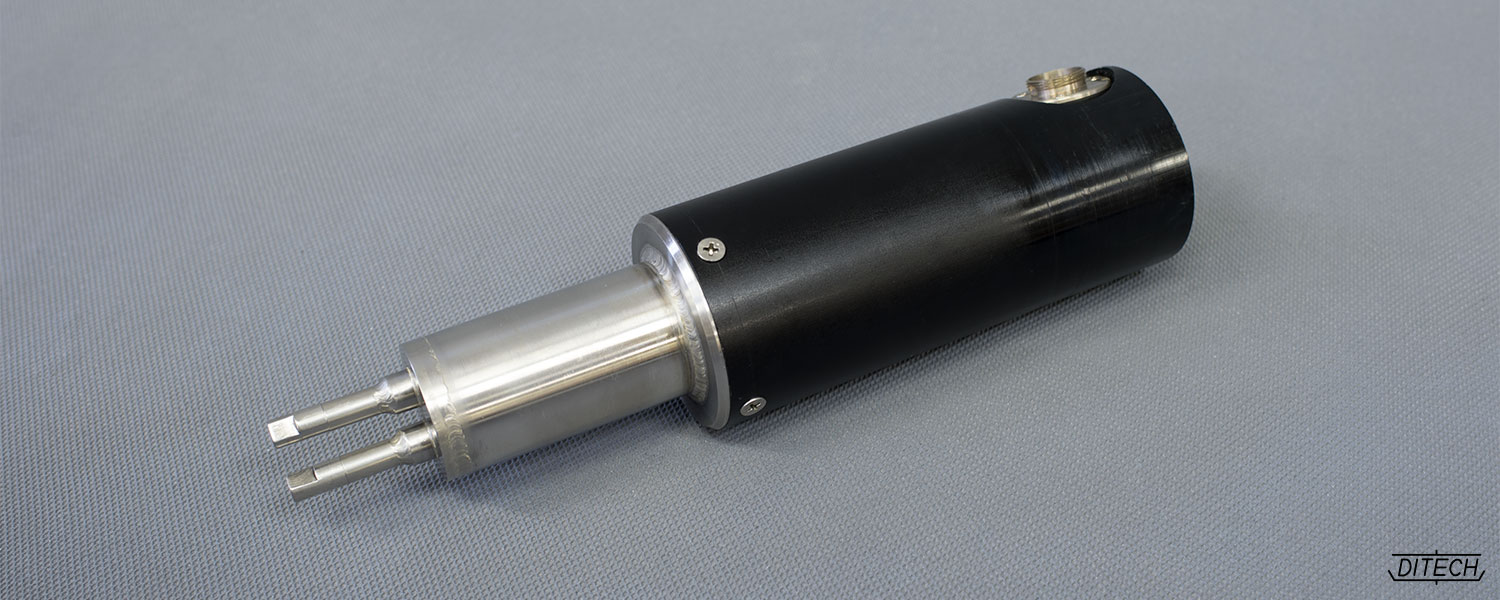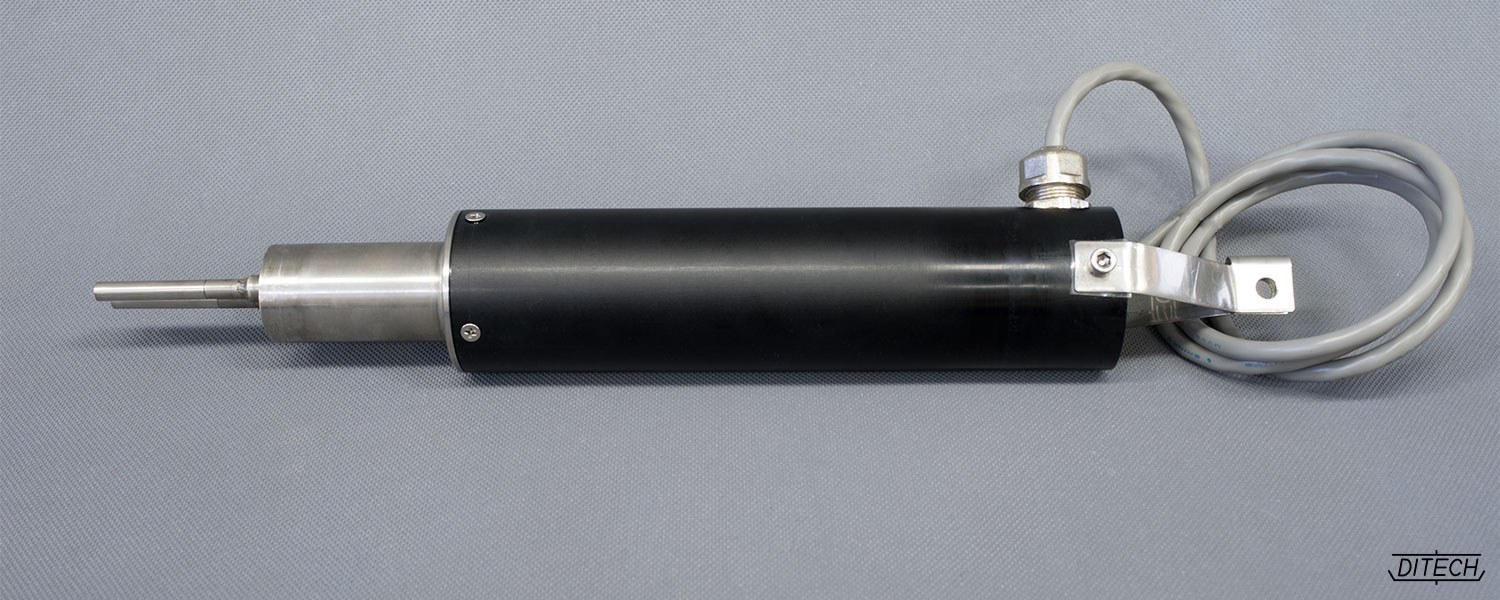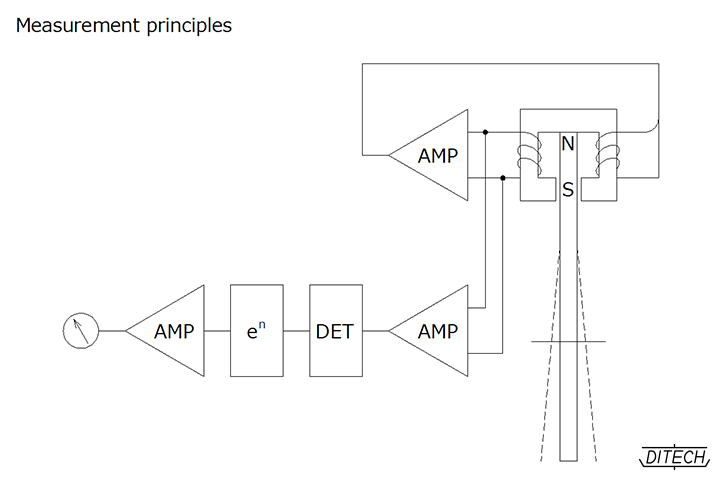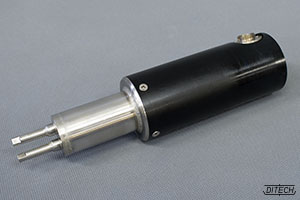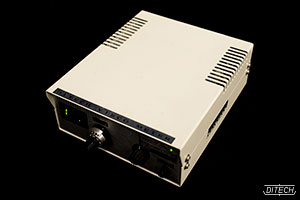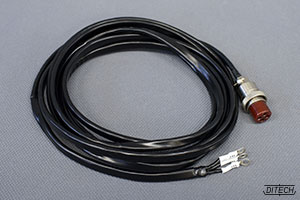Manufacturer of Level Switch, Level Transmitter,
Detector and Sensor DITECH,LTD.
Vibrating viscometer
for laboratory
V-1
to be
measured
Liquid viscosity
Portable type of viscometer capable of using in laboratory.
In a host of industrial fields, viscosity monitoring for the purpose of production-line automation is a vital requirement for more cost-effective and labor-efficient control over processing operations.
This vibration viscosimeter for laboratory is based on the model of QBS-V well-known in on-line process and is developed with considering portability and operability.
When measuring, this vibration viscosimeter is fixed by wire or is installed in the cradle specially designed.
The vibration viscosimeter for on-line process or in-line process is also available.
Click here for information on Vibrating viscometer for process.
principles
The vibrating viscometer determines viscosity by allowing a vibrating blade to vibrate in a liquid and measure the resultant viscous drag. Both the shaft vibration and the detection are performed magnetically. A permanent magnet is fixed at one end of the vibrating shaft while another magnet is connected to two coils on the main unit side for the coil to the drive coil via an amplifier. The other end of the shaft (process side) is free to vibrate in the air without restriction. When the process side of the vibrating shaft is surrounded by the measured fluid and vibrational restriction occurs, the vibration amplitude is determined by the following formula.
- K: constant on the driving force and the displacement
- μ: viscosity
- ρ: density
- Ea: amplitude in air
- Ex: amplitude in the measured fluid
- C : constant derived from vibration parts
The measured amplitude varies according to the fluid's viscosity. After K is calculated using a specimen fluid for which the viscosity and density are already known, µρ can be derived by comparing Ea with Ex.
The structure of the device is shown in the figure. The vibration system consists of a positive-feedback amplification circuit loop and the drive voltage from this amplifier remains constant at all times. The shaft's vibration frequency is influenced by the fluid in which it is immersed. The amplitude of the vibration is damped according to the characteristics of the measured fluid and this change in amplitude is converted into a voltage by the detection coil. This voltage is amplified through a process of synchronous rectification and then output as the viscosity signal.
-
Quick response is obtainable because of its unique construction.
-
Measures the fluids from cryogenic temperature (-200℃) to high temperature (600℃)
(Depends of the specifications) -
The sensor consists of a welded single-body structure without a sealed section, so it features excellent air tightness and can be used even under high-vacuum conditions.
-
The sensor consists of welded single-body structure without friction parts. Two vibrating sensors capable of preventing the vibration leakage make it possible to measure the extremely low viscosity object like activated sludge.
-
A choice of sensor liquid-contact section materials are available including corrosion-resistant titanium, hastelloy, Teflon coating, etc.
-
Sensor can be cleaned up easily.
-
The user can choose the measurement range freely from low viscosity to high viscosity and it is also possible to adjust the span range within the designated viscosity range.
-
The drive system employs DITECH's original magnetic bias system consisting of a non-sliding structure with a rotating shaft, etc. This design ensures a very long working life by greatly reducing abrasion and fatigue during operation.
-
The simplified structure is relatively unaffected by external interference, giving the device excellent durability and realizing maintenance-free operation.
-
The user can set up for measurement easily and change the vibrating sensors for measuring the different range.
-
It is consists of small sensor and small transducer having high portability.
| Measurement range | Min. range 0~5mPa・S , Max. range 0~1000Pa・S (Any other range are possible) |
| Output signal | DC4~20mA DC1~5V ※ One of the above signal |
| Input power | Model V-1 (Model PS-0V1): AC105V/210V 50/60Hz or DC24V |
| Power consumption | 10W |
| Allowable temperature | Detector: -200℃~600℃ (Depends on the specifications) Transducer: Model PS-0V1: -10℃~+50℃ Special cable: Model RG (standard type): -10℃~+60℃ |
| Allowable pressure | Detector: 5MPa (approx. 51kg/cm2G) |
| Weight | Transducer: Model PS-0V1: 1.85kg |
| Size | Transducer: Model PS-0V1: 180(W)×200(D)×60(H) (mm) |
| Installation | Detector: Flange mounting Screws mounting Ferrule IDF, etc. |
| Material | Detector: SUS304 SUS316 Hastelloy Titanium, etc. Lining: PTFE Rubber, etc. Head case: Light alloy SUS304 Salt resistant paint case, etc. |
Model V-1
(Non-explosion-proof type)
<Separated transducer type>
This model is composed of detector unit, transducer and special cable.
 DITECH,LTD.
DITECH,LTD.